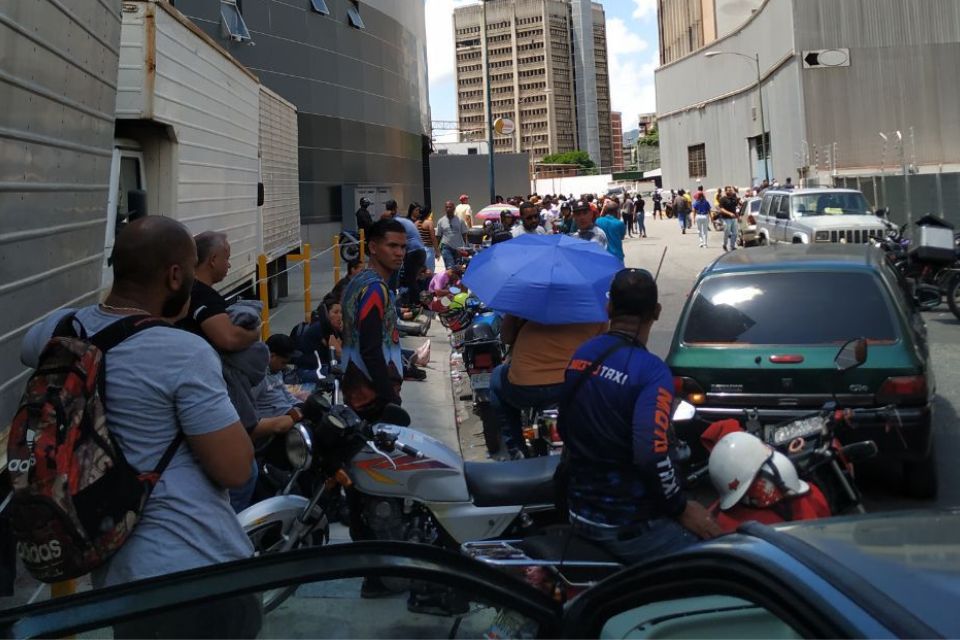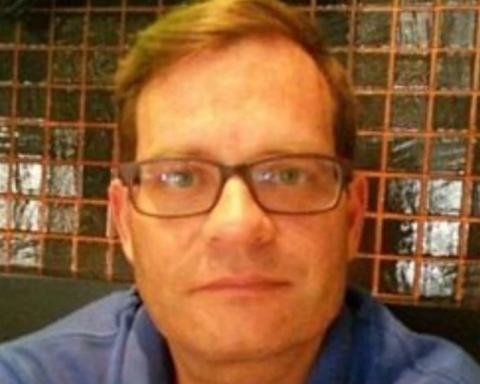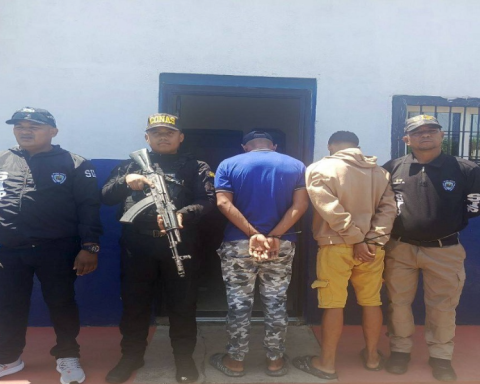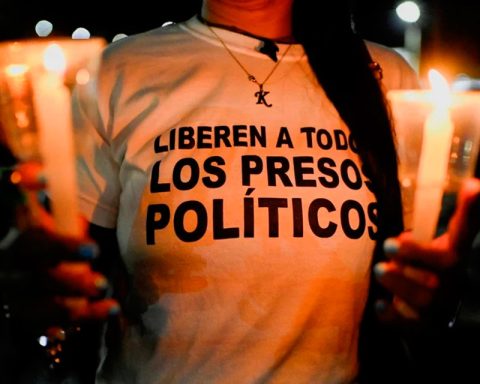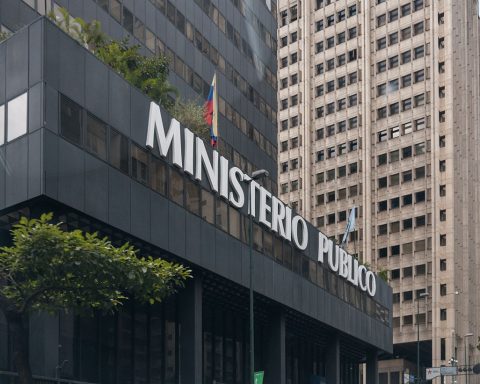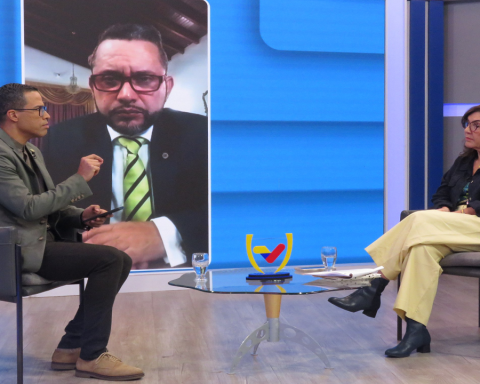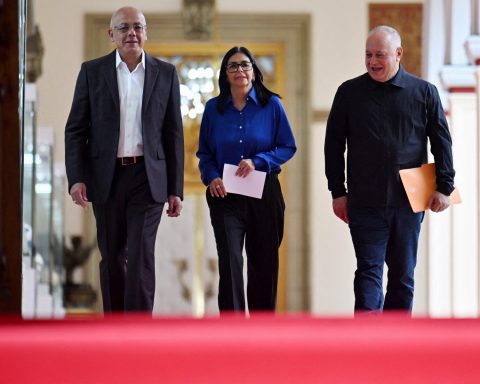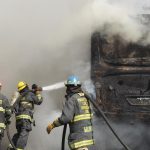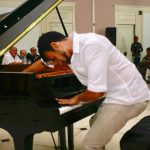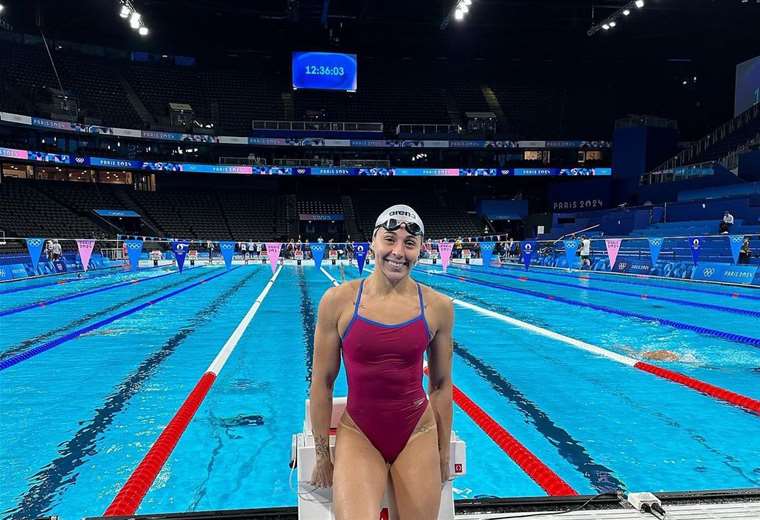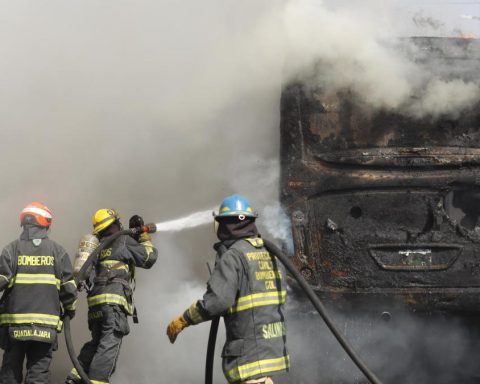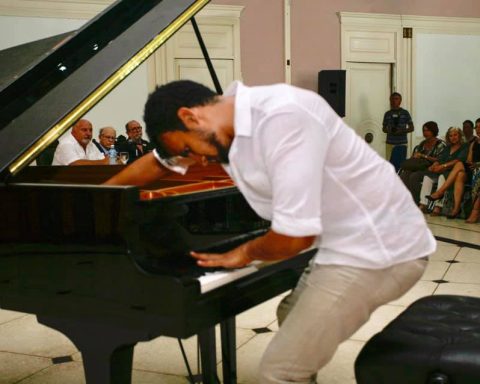None of the relatives of those detained in the so-called Zone 7 in Boleíta, east of Caracas, have been able to see their loved ones to check on their physical condition. Food and some supplies are delivered directly to the police. Civilis points out the massive arbitrary arrests, violations of due process, rigged use of telematic hearings and the lack of individualization of the process in these post-election arrests.
Marisol* looks for any way to cope with the heat and the wait. She moves away from the sun, eats a passion fruit chupi and waits. “We are afraid, I feel helpless. People are only protesting for their country. Can we not even do that now?” she says as she looks for shelter from the sun.
Marisol’s son, 24 years old and who works in the banking sector, left his job at 2:00 pm on Tuesday because of the protests. “He left on foot because there was no transportation and they caught him in Chacao.” They found him in Zone 7 the next day, while other relatives searched in places like the headquarters of the Bolivarian National Police (PNB) in Maripérez. “He has already had the arraignment hearing and we are waiting for him to supposedly be transferred.”
According to comments from dozens of relatives, gathered in Zone 7 on the morning of Friday, August 2, the transfers were to take place at 1:00 p.m. The time was then changed to 4:00 p.m.
Mariana* was also waiting for more detailed information about the situation of her 18-year-old son, who was arrested along with a friend near the San Ignacio shopping center on the afternoon of July 30.
Mariana’s son went from Artigas to a freestyle event in Los Palos Grandes, a residential area near the protests. On the way back they went through the inner part of Chacao to avoid the march, but when the police went up the streets and cross roads, they threw several tear gas bombs.
Mariana’s son and his friends ran away, but they were caught. They were first taken to Maripérez. “They confirmed to us after 7 pm that they were being held there. They told us that they were going to be transferred the next day, but when we arrived on Wednesday, we found out that they were transferred at 11 pm.”
“They are not politicians, they are just kids. What makes me most angry is that they have participated in government events, they go where they are called because they are artists,” says Mariana, who is also concerned about the statements of the ruler Nicolás Maduro and the actions of the authorities to condemn protesters.
“All the hearings are being held here, all via telematics, we see how the prosecutors and public defenders come in. They have said that they are going to transfer them to Tocuyito, El Rodeo, Tocorón. A prison like that? That is not the way for an 18-year-old kid to start his life,” he insists.
The Civilis organization He said there were mass arbitrary arrests and other human rights violations in the context of protests over the election results of 28 July.
The protests were recorded independently, according to the political leadership itself, following the results issued by the National Electoral Council, where the leader Nicolás Maduro was declared the winner.
All the fascist criminals are going to Tocorón and Tocuyito, to maximum security prisons so that they can pay for their crimes before the people. pic.twitter.com/zfXYBSB5v3
— Nicolas Maduro (@NicolasMaduro) August 2, 2024
According to the authorities, more than 1,200 people had been arrested by August 1 and “a thousand more” were expected to be arrested. The Venezuelan president also ordered the immediate remodeling of the Tocorón and Tocuyito prisons, taken over last year to eliminate the pranato in those places, and which he now assures will be used to send the “guarimberos.”
In addition to arbitrary arrests, Civilis points out that the most worrying violation is due process. Presentation hearings, conducted by telematic means, before courts of control in matters of terrorism are carried out without the presence of trusted lawyers or without having access to the file.
“In some cases, relatives have not seen them for more than three days and this could constitute forced disappearance. We are relying on the word of the officials, which would initially break the forced disappearance, but the relatives and lawyers have the right to verify that what the officials say is true. That is why we could talk about these violations, beyond the impediments to peaceful protest and assembly, to opinion and freedom of expression,” said a representative of Civilis.
There is also no individualisation of the process. Civilis points out that in these cases there are no objective charges because the “responsibility of each of these persons in the criminal process is not established, that is, what each one did. This is a basic element of objective imputation in criminal law.”
Time passes. Family members and friends wait and fall prey to rumors about alleged transfers of women to the National Institute for Female Guidance (INOF) Los Teques, to juvenile centers or to the Yare circuit prisons (I, II and III).
*Read also: UN mission warns of accelerated reactivation of repressive machinery
Francisco*, 24, was arrested along with four friends when he went out on the afternoon of Tuesday, July 30, to deliver supplies to the firefighters. He was arrested in La Redoma de San Antonio de los Altos. This group was first taken to Helicoide, where they spent the night with other detained protesters. The next day (Wednesday, July 31) they were transferred to Maripérez and that same afternoon they were taken to Zone 7.
“They are beaten, my boyfriend has an infected wound because he fell and scraped his leg. They already had the presentation hearing and supposedly they are going to transfer him to Yare III,” says his girlfriend.
Civilis also highlights a completely rigged use of telematic hearings. “These people are denied access to a private lawyer and their relatives, which means that you do not see the file, you do not see the crimes they are accused of, you do not know the physical and mental state of the detained persons. So how can there be due process and judicial guarantees in this context?”
In the case of a paramedic, arrested on Monday 29 in Las Mercedes along with two of his sisters and his mother, it is his friends who are responsible for food and supplies. “That’s a crowd. There are men of 50, 60 years old. They brought them here to Zone 7, but we don’t know anything about their condition or if they have been given an audience, we have only been able to pass out food and that’s it,” they comment.
Teenagers without defense or representation
Julia* is waiting with her sister to find out information about her daughter, a 16-year-old model and musician from the Caracas Symphony Orchestra, who has been detained since Monday the 29th. The young woman was arrested in Chacaito along with her 26-year-old cousin.
“They did go out to march, it was the first time my daughter had done that. They left at around 3 in the afternoon, I imagine that when they got there they were met with repression,” says Julia, who was able to communicate with the teenager for a few minutes using a borrowed cell phone.
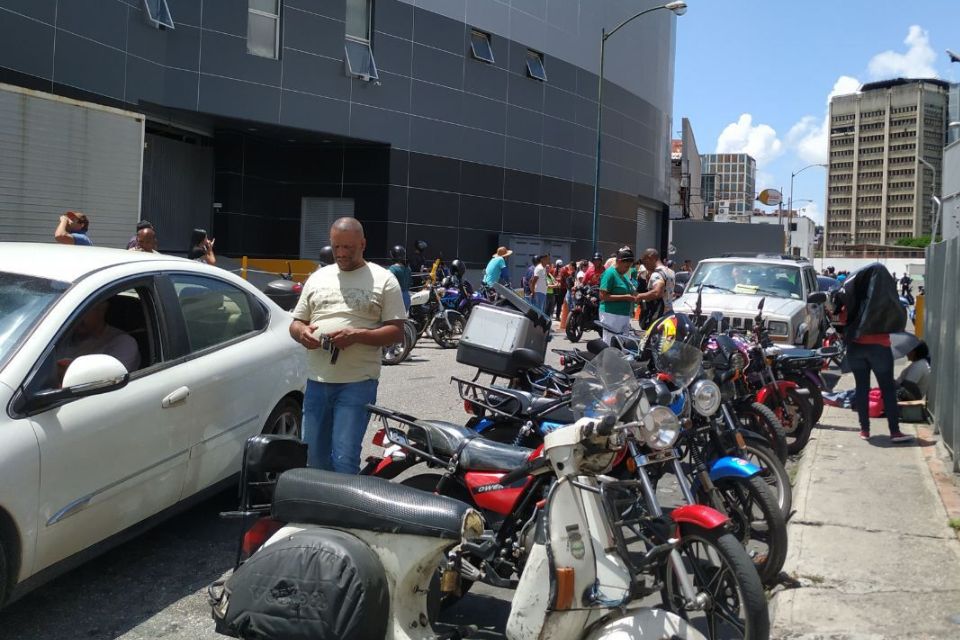
«She recently got a vacation job, one of those part-time jobs because I don’t like her to be at home doing nothing. We don’t know if they’ve had the hearings, how they’re doing, she’s barely been able to communicate with me and she told me to bring her clothes, a blanket because it’s very cold, but when I was going to give it to her they told me no. I just gave her some wet wipes, some sanitary pads, Gatorade and food, but I don’t know if she received it,» she says.
Julia, like her sister and other relatives, complains about the lack of information about the detainees. She knows that her daughter is with women and other minors. “There are many. She told me that there are older women, pregnant women, that there are many people in prison (…) Here a woman yesterday brought some flip-flops to her child, it was the afternoon and he was still barefoot. That is not fair.”
Diplomatic officials from Spain and Italy entered Zone 7 after 10:40 a.m. to try to see the detainees of those nationalities and verify their health status. Upon leaving, barely half an hour later, they were stopped to take down the names and IDs of other protesters who were not on their radar.
* The names of the relatives and detainees were changed after they expressed fear of reprisals
Post Views: 150
